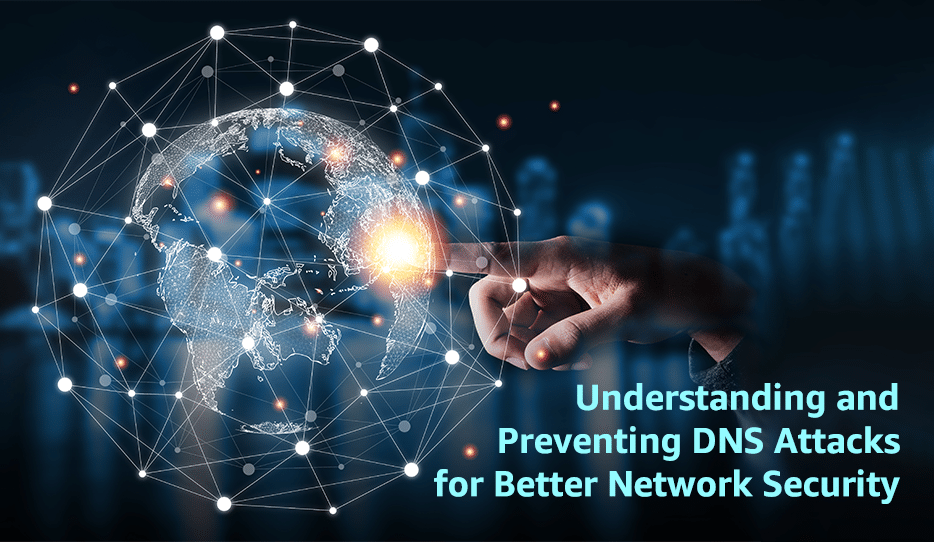
Network security is a critical concern in today’s digital landscape. As organizations heavily rely on the internet and web-based services, the Domain Name System (DNS) plays a crucial role in facilitating communication. However, DNS infrastructure is vulnerable to various attacks that can compromise data integrity and overall security. In this blog post, we will explore the world of DNS attacks and discuss effective preventive measures to safeguard your network.
DNS attacks: A brief overview
DNS attacks come in various forms, each posing unique risks.
- DNS Cache Poisoning involves injecting malicious data into a DNS resolver’s cache, redirecting legitimate traffic to a malicious server.
- DNS Spoofing involves intercepting and modifying DNS responses to redirect users to malicious websites, leading to phishing or malware distribution.
- DNS Amplification exploits misconfigured DNS servers to amplify traffic for distributed denial-of-service (DDoS) attacks.
- DNS Tunneling leverages DNS protocols to bypass firewalls and exfiltrate sensitive data.
Understanding DNSSEC
DNS Security Extensions (DNSSEC) is a suite of protocols designed to enhance DNS infrastructure security. It uses digital signatures for authentication and integrity verification, ensuring that responses are not tampered with during transmission. DNSSEC also employs key management and zone signing to establish trust and validate the authenticity of DNS data.
Implementing best practices to protect against DNS attacks
- Regularly update and patch your DNS servers to mitigate vulnerabilities.
- Restrict access to DNS servers, by employing strong authentication mechanisms and privileged access management.
- Implement network segmentation to isolate DNS servers from critical systems.
- Deploy comprehensive monitoring and logging solutions to detect suspicious DNS activities promptly.
- Utilize a DNS firewall to filter and block malicious DNS traffic.
- Conduct employee education programs to raise awareness about phishing risks and website authenticity verification.
Collaborative Defense
To stay ahead of emerging threats, it is essential to adopt a collaborative defense approach.
- Engage in information sharing through threat intelligence platforms.
- Consider outsourcing DNS management to reputable Managed Service Providers (MSPs) specializing in security and threat mitigation.
Understanding and preventing DNS attacks is crucial for maintaining network security and protecting sensitive data. By implementing robust security measures such as DNSSEC, following best practices, and adopting collaborative defense strategies, organizations can significantly reduce the risk of DNS attacks. Stay vigilant, keep systems updated, and foster a culture of security awareness to defend against evolving threats in the ever-changing landscape of network security.